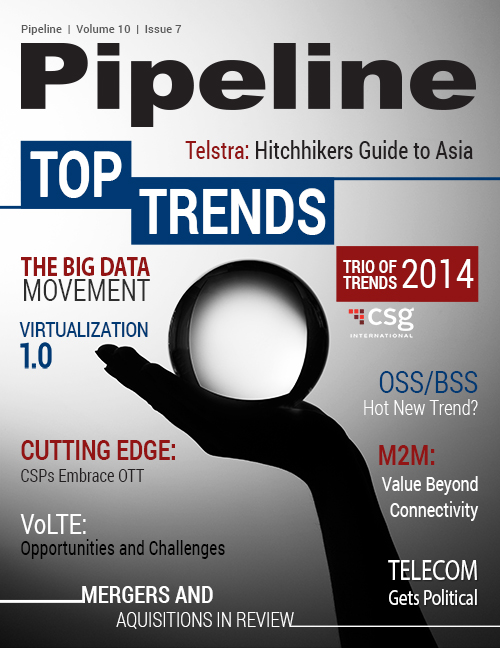COMET News: December 2013
Amdocs updates
November was a big month for Amdocs. On November 5, ‘Docs announced three customers wins and acquired SON provider Celcite. Later in the month, Amdocs added small-cell management and intelligent Wi-Fi offloading to its product portfolio, and two separate analyst firms names Amdocs the leader in telecom software testing. Amdocs also held its latest user group meeting, InTouch, in San Diego. Pipeline executive editor Scott St. John reported live from the event.
Intouch provided behind-the-scenes insights to the momentum and direction at Amdocs and a unique opportunity to hear from Amdocs' leadership, product-line heads, and key customers including AT&T, Comcast, DirectTV, Sprint, Telefonica, and Vodafone. Throughout the customer presentations one theme ran consistently: "Amdocs delivers." While we often hear but do not publish such postulations from the vendor community, this was different. It wasn't coming from Amdocs, it was coming directly from Amdocs' customers. As we've covered the industry over the last decade, I can't think of a single instance where so many top-shelf customers spanning so many regions and verticals were willing to come forward and talk so candidly about the challenges they are facing and how their OSS/BSS provider is actually helping them solve them. This was arguably one of the most notable takeaways from the event.
One-on-one meetings with key stakeholders of Amdocs' product lines provided visibility into where they are placing their bets and literally investing in their products. Cloud and
virtualization, big data, mobile financial and commerce, network convergence and evolution, and customer experience management (CEM) with social and self-service integration into proactive
customer care are all integral to Amdocs' near-term strategy. Each theme is well aligned to upcoming issues of Pipeline so look for more ongoing and in-depth coverage as these trends
continue to evolve.
Mobile money movement
Mobile money got a shot in the arm in November. In Europe, Orange and Visa Europe signed a strategic partnership at the top of the month centered around NFC payments, similar to the deal MasterCard and Deutsche Telekom signed last year. A week later in the US, Isis Mobile Wallet, the NFC-drive mobile payment platform developed by AT&T, T-Mobile, and Verizon, finally left the nest. Yes, after languishing in test markets and several false starts, Isis Mobile Wallet has been deployed nationwide…or has it? Upon closer investigation, it appears ISIS is still half-baked. Customers can only use American Express or Chase cards, and requires a special SIM card. Worse, the mobile app, at least on the Android, is an epic fail. On the Google Play store, the Verizon version of the ISIS app scores a measly 1.5 stars out of 5, with more than 1,600 reviews.
Mobile health
Wouldn't it be nice if the doctor came to you when you were sick, instead of the other way around? Mobile healthcare, also known as telemedicine, promises to deliver virtualized solutions that can make this dream a reality. In mid-November, Time Warner Cable began testing Virtual Doctor Visit, part of its home healthcare strategy. The trial allows doctors at the Cleveland Clinic to remotely interact with patients though encrypted videoconferencing.
This type of remote patient care is supported by medical professionals and is likely to become more pervasive in the coming years. Dr. Eiran Gorodeski, director of Center for Connected Care at Cleveland Clinic, feels that it improves healthcare. “We know that great care can be delivered where patients want to be most: in their homes, and we see telemedicine as a way to help us do that better and more efficiently," he said in an official announcement.



















